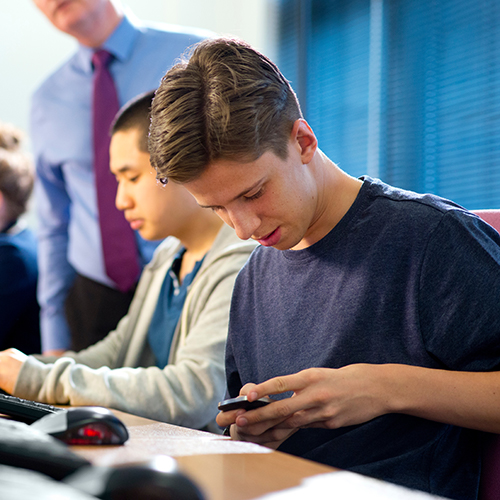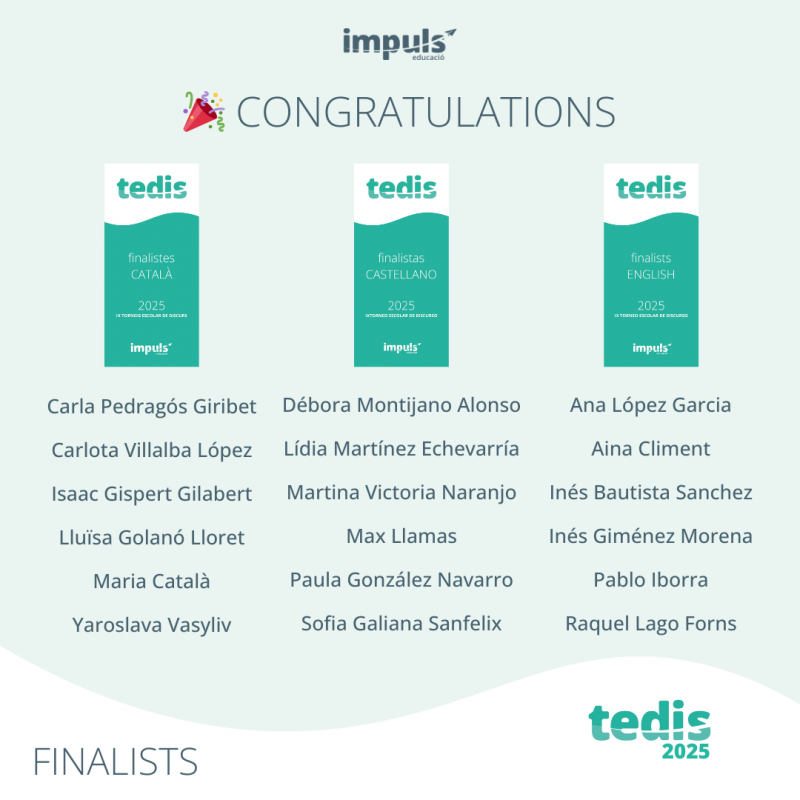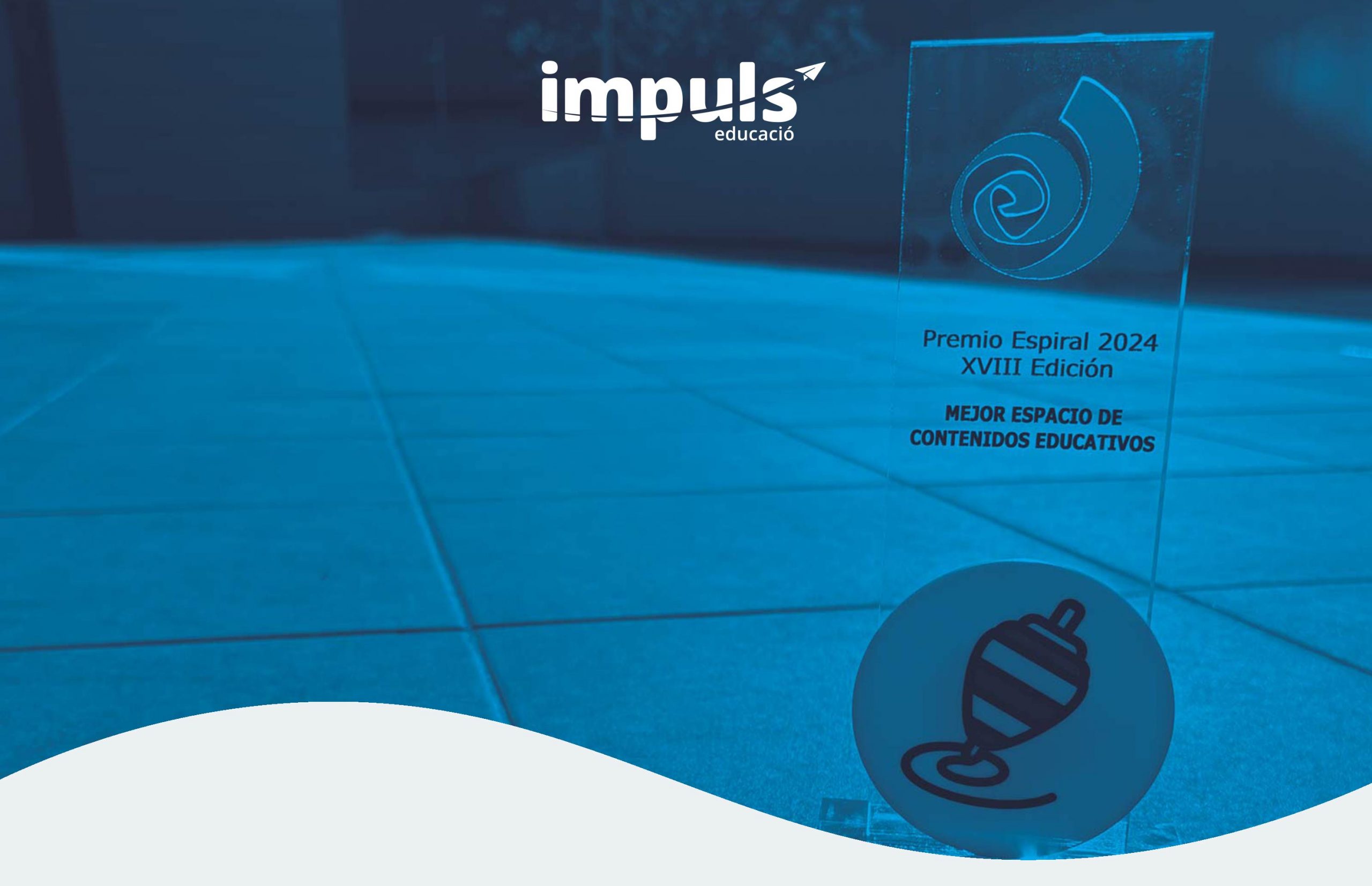12 June 2020
Educational Needs and Classroom Resources for Highly Qualified Students
High abilities are not a matter of being or not being, but of the potential to become. (Javier Tourón)
By Maria Latre
Having high ability does not mean having the answer to all the questions, knowing things that have not been learned before or being excellent at everything, always.
Having high capacity involves:
-
A greater ability to interrelate concepts and a greater perception of details.
- A remarkably high responsiveness.
- Greater curiosity and imagination.
- Divergent thinking.
- Asynchrony in one mode or another; can be combined with learning difficulties, physical or motor development, emotional or social maturity, or others.

What educational needs does the high-ability student have?
Students with greater potential have the same developmental needs as other students. However, the school does not always have the best resources for these cases. Sometimes, it responds to high-ability students by offering them more work, as well as the same level and complexity as other students.
It should be noted that the development of student potential depends on 3 factors:
-
Challenge level
- Group
- Environment
How does the level of challenge influence you?
Yerkes-Dodson’s law, formulated in the early twentieth century, relates the level of stress to performance. Neurology confirms this through the analysis of stress hormone levels. This law defines three main states: disengagement, overload, and flow.

Beware of boredom!
If the challenge is below its capacity it generates boredom, stress, disengagement and / or demotivation.

Do not overload
On the other hand, if the challenge is above its capacity, it generates overload and blockage.

Let it flow
The challenge adjusted to its capacity is what generates flow: connection and flow between both hemispheres.
How does the group influence you?
How does the environment influence you?
Students need opportunities to involve their learning qualities.
What can you do?
1. Boost their curiosity

Make an inquiry mural!
Distribute post-it notes for them to write down their questions during your presentation and generate mini-projects with these questions.
K-W-L
What do I know, what do I want to know and how do I want to know? Build on your prior knowledge to build learning.
“Press conference”
Turn your students into a team of reporters, willing to ask you many previously thought-out questions.
Debate
Introduce the lesson and then group them together to generate a discussion between them about the most interesting points they want to know about the topic.
2. Boost their imagination

What would the lives of children be like in …? (Prehistory, Ancient Rome…)
He writes the diary of a soldier during World War II, of a sailor on an expedition that landed in America in 1492 …
What would happen if the moon hit the Earth? What if the plants did not receive sun, air and water?
3. Help them observe

Observe a landscape or text to extract information.
Deduce mathematical formulas and properties by themselves.
4. Relate ideas

Relate learning to your immediate environment or professional environment.
5. Demand the maximum of its potential

Don’t let them settle into your comfort zone.
For many, surrendering to their age is yielding below their potential.
It offers feedback aimed at developing their strengths.
6. Encourage the search for alternatives

Pose problems that have more than one way to solve them.
It offers open-ended questions of reflection without a single answer.
Teaches to argue to defend diverse positions.
7. Give thought tools

Offer them a breakthrough and a new learning experience.
Challenging the level of their ability, they must come to the conclusion with effort.
It gives challenging content.
And… how can we offer attractive challenges and encourage everyone to get as far as they can at all times?
Talent is not worked from the application of small measures that isolate the student, but from the creation of an educational environment that stimulates this greater performance, that works for the merit and the effort and that promotes the work between students with similar interests and abilities. In this way we achieve a positive feedback that maintains a high level of challenge for each student according to ability. The following ideas may be helpful to you:
1. Build a student profile
Defining ability, interests, learning styles, strengths and weaknesses
2. Play with the resume
Reorganize the curriculum by grouping it by topics that relate to each other
3. Think: Why do they want to learn this?
In what fields or professions does it apply? How does it help them better understand the world?
4. Challenge yourself
- A curious question: What if…?
- Solve a problem
- Create …. A museum of minerals! A skate circuit! A trip to Europe!
5. Start from a real situation
- Visit a museum, an exhibition, or downtown cuisine
- Watch a movie
- Question a news story
- Bring the problem to the classroom: An expert, an immigrant, a politician…
- Participate in a school competition
6. Provide a variety of sources of information and let them find their own
- Flipped classroom
- External visit
- Video-documentary
- Expert
- Debate
- News
- In short, what high-ability students need is:
- Critical and creative thinking skills
- Sense of learning Why do I have to learn this?
- A group that offers synergies, a sense of belonging and inclusion
- Internal strengths, sense of competition
Source:
La rebelión del talento. En aquesta web trobaràs recursos i formació sobre l’atenció dels nens i nens amb altes capacitats. Alguns articles d’especial interès són: “Yo me motivo o tú me motivas”; “Me aburro”; “En busca del tesoro: El portfolio del talento”; “Lástima lo que a mi me apasiona no es extraescolar”; “Despertar la creatividad, desarrollar el talento”.
Related to: Giftedness, Tutorial
You might also like









Leave A Comment